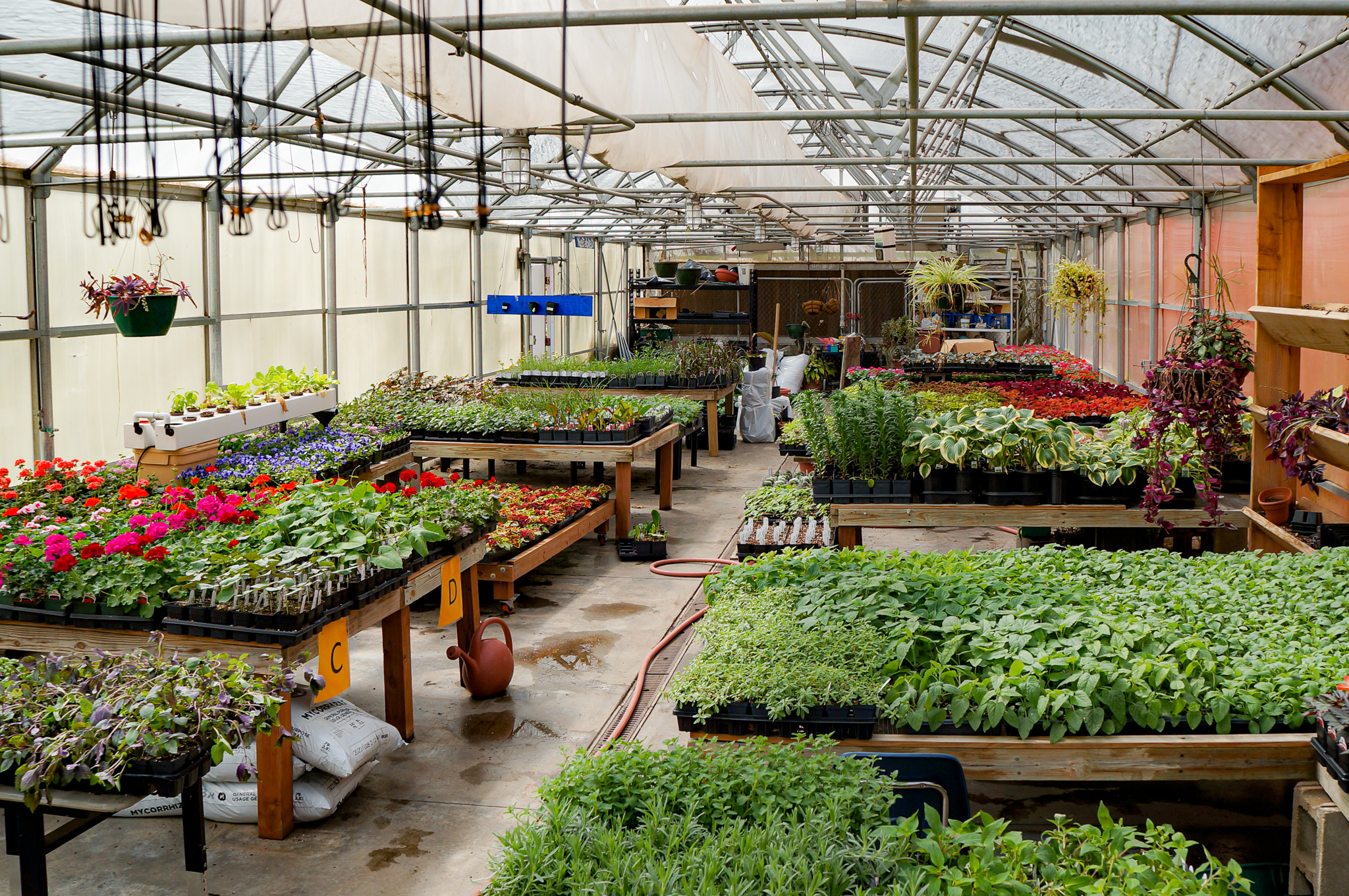What’s green and helps young people flourish? Plants!
“In the greenhouse, we’re always working on social skills,” says Megan Sperry, horticulture instructor. “Working with plants teaches youths how to get along with others, ask for help when needed and do something even if you don’t want to. We work on both hard skills and soft skills, and you need both to be successful in the world.”
Cultivating plants is so much more than digging in the dirt. Three of our programs help participants get their hands dirty—and gain knowledge and confidence in the process. And all of these programs are possible thanks in part to our annual plant sale.
Build Trybe
This unique program provides experiential learning opportunities in culinary, construction, and horticulture/landscape arenas. Youth age 13 and older connect with mentors and employers for paid apprenticeships. This hands-on training helps prepare young people for careers in skilled professions.
In Build Trybe’s horticulture program, participants learn from farmers and horticulturists. They also come to appreciate the role plants play in sustaining us all.
“Our apprentices get hands-on training, so they’re learning about the production of food, and they’re supplying food to the cafeteria. So, youth are engaged and learn where food and vegetables come from,” says Theo Bunch, director of Build Trybe.
“In a very direct way, they can see the impact on their world. If they do a good job and care for this piece of earth and make it bountiful, it can nourish them and the community around them. We can teach these concepts in the classroom, but out in our gardens and greenhouse, they can see the direct impact.”
This outdoor classroom changes lives. But this is only one way plants are transforming the lives of our youth.
Conservation landscaping
Not every plant is a welcome plant. During eight-week programs, youths learn about conservation landscaping. Thanks to a partnership with the Heartland Conservation Alliance, young people ages 16 to 21 are paid to go to parks and worksites. There, they remove invasive plant species and work to restore plant species native to Kansas and Missouri.
“In the young people I work with, I see a drive and a willingness to work hard for their own futures,” says Dominic Ward, conservation landscaping instructor. “They get a lift from seeing the fruits of their labors, too. They can see their hard work and say, ‘Sweet, I’ve made an impact.’ They get to see that right away, not weeks or months later.”
While eco-landscaping may be a new term to many people, awareness about invasive plant species is growing. This know-how can differentiate youths in the workplace if they seek a career in landscaping.
Even if youths don’t choose to work with plants, they’re still gaining an appreciation for their environment and gaining interpersonal skills.
“My favorite thing is the ‘Whoa! Cool!’ when we learn something new about plants and conservation,” Theo says. “I’m like, ‘I know! Isn’t it awesome?’”
Horticulture therapy
Some Cornerstones of Care young people don’t necessarily set out to work with plants. It’s just part of their classwork—and often becomes so much more.
Megan Sperry’s classroom includes a greenhouse and raised outdoor beds. Students learn about the life cycle of plants, the water cycle, and which bugs are good and which ones are bad. It’s all part of the hands-on experience as youths cultivate plants, flowers and vegetables.
“In January, we came into the greenhouse, and it was empty and gray and cold,” Megan says. “Now, as we’re getting ready for the plant sale, the kids are seeing the products of their efforts. Things are starting to bloom and are really green. They’re taking ownership and feeling proud of what they’ve accomplished.”
Students receive a stipend for their work in the greenhouse. They also develop self-esteem and confidence from a job well done.
Thyme for Kids Annual Plant Sale
Get your garden started and help our horticulture programs grow. Join us for the Thyme for Kids Annual Plant Sale, online or in person. Whether you’d like plants delivered to your door or want to shop in person at our Ozanam Campus greenhouse, there’s an option that will work for you. Learn more about this year’s plant sale. It features annuals, perennials, herbs, and native plants, too.
This plant sale is so much more than a plant sale. Proceeds funnel right back into the horticulture programs at Cornerstones of Care. Your purchases help fund seeds, supplies, stipends, and more. Thanks for helping our youth build the tangible and emotional skills they need to thrive.



